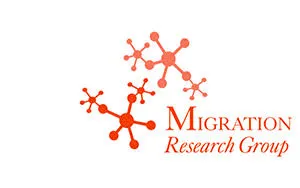Please note: this event has passed
Hosted by the Migration Research Group, this reflexive workshop explores ethics and epistemic politics in migration research. In recent years, there has been a proliferation of migration research ‘on the ground’ in Europe and across the globe, and especially in places where migration ‘crises’ have been declared. This research has led to a wealth of insightful and critical scholarship, including methodological discussions, however, in-depth reflections on the ethical challenges of conducting such research is often missing.
What personal/political ethical questions and struggles do we encounter as researchers ‘on the ground’, and how do we respond to these? This is not only a matter of personal reflexivity on ethical practice but also concerns broader questions regarding the politics of knowledge production and the impact of structural violences at the intersections of gender, race, class and sexuality. The workshop will address questions such as: What is the impact of our interventions ‘on the ground’, and how are we impacted? How to deal with anger, distress, failure? How to conduct participatory research with ‘vulnerable’ migrants in spaces of violence? Who comes to be regarded as ‘vulnerable’ and what does it do to mark certain people as ‘vulnerable’? How to support migrant struggles without amplifying the violence of migration management?
This interactive workshop is led by Dr Leonie Ansems de Vries, Dr Nora Stel and Dr Nadine Voelkner, who will reflect on their own experiences of conducting research with migrants and invite workshop participants to share their experiences and reflections.
Dr Leonie Ansems de Vries is a Senior Lecturer in International Relations at King’s College London and Chair of the Migration Research Group . She is the author of Re-Imagining a Politics of Life: From Governance of Order to Politics of Movement (2014). From 2015-2017, Leonie led the collaborative research project ‘Documenting the Humanitarian Migration Crisis in the Mediterranean’, which examined the effects of migration management practices on people on the move. She has also conducted policy research on legal pathways to protection and led the academic/artistic projects ‘We are in between’ and 'Migrant Voices in London'.
Dr Nora Stel is an Assistant Professor in Governance, Migration and Human Rights at the Maastricht School of Management. She is also an Affiliated Scholar at Utrecht University’s Centre for Conflict Studies and at the Issam Fares Institute for Public Policy and International Affairs at the American University of Beirut. Nora works on the political anthropology of governance, authority, and legitimacy in conflict-affected contexts, with a particular focus on non-state actors, informal institutions, and refugee communities in the Levant. Her recent work is on strategic institutional ambiguity and epistemic politics in the governance of displacement. Nora’s book Hybrid Political Order and the Politics of Uncertainty – Refugee Governance in Lebanon is due to be published next year.
Dr Nadine Voelkner is a Senior Lecturer in International Relations at the University of Groningen and co-editor of the volume Critical Security Methods (Routledge, 2015). Nadine runs the Health Ecologies research unit and is an Aletta Research Fellow of the Groningen Centre for Health and Humanities and the Aletta Jacobs School of Public Health. Her research focuses on political ecologies of health, including a recent project on the affective economies in the health integration of asylum seekers in Germany, which builds also on earlier work on the governance of forced migration and health in SE Asia. She is working on a manuscript tentatively entitled Pathogenic Entanglements: towards an ecological approach to global health security.
The workshop is sponsored by the Migration Research Group and the IR & Ethics Research Theme in the School of Security Studies.

Event details
(SE) 6.04Bush House
Strand campus, 30 Aldwych, London, WC2B 4BG
